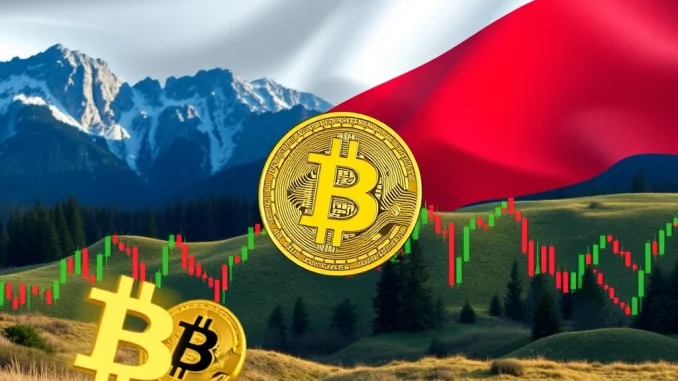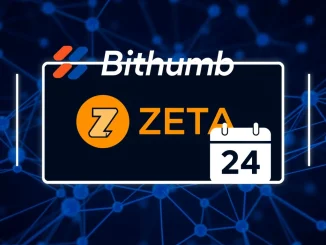
Big news from the East! The financial landscape in Russia is seeing a notable shift concerning digital assets. If you’re keeping an eye on how countries are integrating cryptocurrencies and blockchain into their traditional financial systems, this development from the Bank of Russia is definitely worth paying attention to.
What the Bank of Russia Decided
According to reports, the Bank of Russia, the nation’s central bank, has made a significant decision. They are now allowing financial institutions within the country to offer certain instruments that reference cryptocurrency prices. Think of these as financial products tied to the value of crypto, but without you directly owning the underlying digital currency.
Specifically, the green light has been given for:
- Derivative instruments
- Securities
- Other digital financial assets
These instruments can use cryptocurrency prices as their reference point. This is a key development, indicating a move towards integrating crypto-related financial products into the regulated sector, albeit with specific limitations.
Accessing Crypto Derivatives Trading
Now, here’s the crucial part: this isn’t a free-for-all for everyone. The services for these crypto-referenced instruments will strictly be available only to specific individuals and entities. Who are they? The ruling specifies they must be qualified investors.
This distinction is vital. In most financial markets, ‘qualified investor’ status is granted to those who meet certain criteria related to income, net worth, professional experience, or institutional type. These criteria are designed to ensure that individuals or entities engaging in more complex or potentially riskier investments have the financial capacity and understanding to do so. So, while crypto derivatives trading is now on the table, it’s behind a gate guarded by these qualification requirements.
Understanding Qualified Investors in This Context
Why the restriction to qualified investors? Regulators often implement such measures to protect retail or less experienced investors from potentially volatile or complex financial products. Derivatives, by their nature, can involve significant leverage and risk. By limiting access, the Bank of Russia seems to be taking a cautious approach, allowing institutional and sophisticated players to engage while shielding the general public.
Defining exactly who qualifies in Russia involves specific legal criteria, but generally includes large financial institutions, professional market participants, and potentially high-net-worth individuals who meet set thresholds. This move suggests the Bank of Russia sees value in allowing sophisticated players to hedge or speculate on crypto price movements within the regulated financial system.
Implications of Russia Crypto Regulations
This decision marks an evolution in Russia crypto regulations. For a country that has previously expressed caution and even considered outright bans on certain crypto activities, allowing regulated financial institutions to offer crypto-referenced derivatives is a significant step. It signals a recognition of the growing importance of digital assets and the need to provide regulated avenues for exposure, even if limited.
What are some potential implications?
- Increased Institutional Interest: Financial institutions can now build and offer products that might attract more traditional investors who prefer regulated structures over direct crypto ownership.
- Market Maturity: The availability of derivatives can contribute to market maturity by providing tools for hedging price risk.
- Regulatory Framework Development: This move suggests ongoing work within the Bank of Russia to build a framework for digital assets, potentially paving the way for further integration in the future.
What’s Not Allowed? No Actual Crypto Settlement
It’s crucial to highlight a key limitation: the relevant services will *not* support settlement in actual cryptocurrencies. This means that when a derivative contract expires or is settled, the payout will be in traditional fiat currency (presumably Russian Rubles) based on the crypto price difference, rather than delivering or receiving Bitcoin, Ethereum, or other cryptocurrencies.
This reinforces the cautious approach. The Bank of Russia is allowing exposure to crypto price movements through regulated financial instruments but is stopping short of facilitating direct crypto transactions or ownership within this specific framework. This could be due to ongoing concerns about the use of cryptocurrencies for illicit activities, volatility, or simply a preference to keep the core financial system anchored in fiat.
The Role of Digital Financial Assets
The mention of digital financial assets (DFAs) is also noteworthy. Russia has been developing its legal framework around DFAs, which can include tokenized assets, digital rights, and potentially other forms of digital value. Including DFAs that reference crypto prices within this ruling suggests an attempt to fit crypto-related financial products into the existing or developing legal definitions for digital assets in Russia.
A Powerful Step, But Limited Access
In summary, the decision by the Bank of Russia to permit financial institutions to offer crypto-referenced derivatives and securities to qualified investors is a significant, even Powerful, step forward in Russia crypto regulations. It opens the door for sophisticated financial players to engage with the crypto market through regulated channels.
However, the restriction to qualified investors and the prohibition of settlement in actual cryptocurrencies highlight a cautious and controlled approach. This isn’t widespread adoption of crypto for the general public, but rather a specific integration of crypto derivatives trading within the professional financial sector. It’s a clear signal that Russia is navigating the complex world of digital assets, finding ways to allow participation while attempting to mitigate perceived risks.



